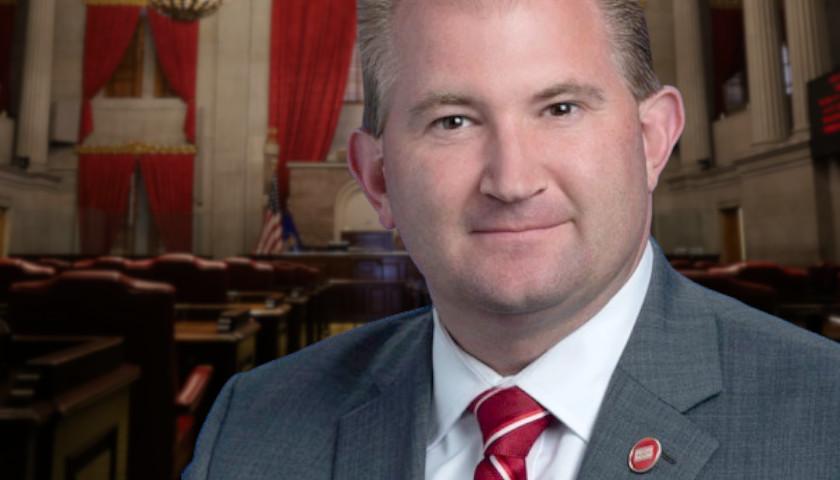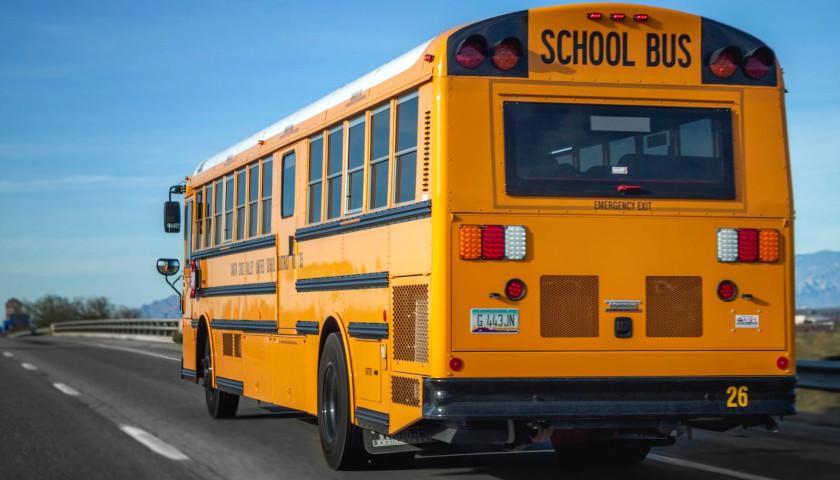by Mitchell Scacchi
The Republicans hoping to replace Gov. Chris Sununu in the corner office next year have all embraced universal school choice, a deep contrast with their Democratic rivals.
On WFEA Morning Update with Drew Cline Monday, former U.S. Sen. and Republican gubernatorial candidate Kelly Ayotte said that, as governor, she would support universal school choice in New Hampshire, building upon the New Hampshire GOP’s successes with the popular Education Freedom Account (EFA) program.
“I think the work that’s been done to allow parents and children to go to school where they would like to – I think we can expand that. I support universal education freedom,” Ayotte said. “And the reason for that is I believe that each child learns differently, and each child is better suited at different schools, whether it’s a public school – and I’m a product of public schools – or whether it’s a charter school or homeschooling.”
The former senator continued, “And I think we have an opportunity in education to go even further and to build on what Gov. Sununu has done…so that is an area I look forward to leaning into.”
She is hardly alone.
The other Republican in the race, former state Sen. Chuck Morse, also supports universal school choice. Morse helped pass the EFA program in 2021 as Senate president.
“Chuck Morse has been a leader for parental rights and has actually passed into law EFA in New Hampshire, and the goal would be for all parents to have the right to have the school that best fits their children’s needs,” Morse campaign advisor Dave Carney told NHJournal. “Your zip code shouldn’t determine your school but rather by the best opportunity for each child in the state. It’s great to see folks joining the effort now that the results in educational opportunity have been demonstrated and parental rights have gained currency.”
State Education Commissioner Frank Edelblut, who many expect will enter the GOP gubernatorial primary, has also come out in favor of universal education freedom.
“I support universal choice in education because I support children,” Edelblut told NHJournal. “One-size-fits-all does not work for children and, quite frankly, does not work for educators or families. We must move beyond the status quo and allow our education entrepreneurs – ‘edupreneurs’ – the flexibility to unleash learning for all students.”
The two Democrats seeking the office, Manchester Mayor Joyce Craig and Executive Councilor Cinde Warmington, both declined to comment on Ayotte’s position or their own regarding education freedom. However, they have both made it clear they oppose even the modest choice available in the income-based EFA program.
Advocates for the “funding follows the student” model believe they are making a grave political mistake.
“A new July 2023 poll from Emerson College found that Republicans are beating Democrats on education by three points in battleground states,” said Corey DeAngelis, executive director of the Education Freedom Institute. “That’s not a huge advantage at the moment, but it does represent a seismic shift from the decades-long double-digit advantage Democrats held with voters on education. It’s not a coincidence that it happened when Republicans started leaning in hard on education freedom, and when Democrats started attacking parental rights.
“Kids don’t belong to the government. If the Democrat politicians are smart, they drop their anti-parent positions once and for all. If they don’t, the GOP will win even more on education,” DeAngelis said.
Ayotte reiterated her school choice stance in her first campaign speech during her kickoff event Monday night. “Parents know what is best for their children, and we want to give every child in this state the opportunity to go to the school or the educational setting that is best for them.”
These GOP endorsements come after New Hampshire Republicans, with the help of Sununu, expanded the EFA program during the most recent legislative session. Against unified Democratic opposition, Republicans increased eligibility from households making no more than 300 percent of the federal poverty level to those with income at or below 350 percent of the federal poverty level.
As the law currently stands, not every family can access EFA funds. For example, a single parent with one child making more than $69,020, or a family of four making more than $105,000, are ineligible for the program.
Making school choice universal in New Hampshire would mean eliminating this income cap on the EFA program altogether, giving every family in the state access to their per-pupil share of the state’s education spending to pay for alternatives like private or homeschool, or education-related expenses such as supplies and tutoring services.
Given that the recent increase in EFA eligibility just barely passed the state legislature – by a 187-184 vote in the House and a 14-10 vote in the Senate – universal school choice promises to be a hotly contested issue in the state going forward.
But school choice has become increasingly popular among voters. According to national polling from RealClear Opinion Research in June 2023, 71 percent of registered voters supported the idea of school choice, compared to just 13 percent opposed. This was true across party lines, as well, with 80 percent of Republicans, 69 percent of Independents, and 66 percent of Democrats in support of the concept.
Teachers unions, both in New Hampshire and nationwide, have made it clear they will not accept any deviation from the “assigned-government-school” system. Deb Howes, president of AFT (American Federation of Teachers)-New Hampshire, has filed a lawsuit in Merrimack County Superior Court attempting to block the state from using any more of the Trust Fund money to fund the EFA program.
And although she declined to comment to NHJournal, Executive Councilor Warmington has been an outspoken critic of the EFA program in the past, calling it “a well-coordinated effort…poised to dramatically privatize education in our state,” a “dangerous effort,” and “nothing less than an evisceration of public schools.”
In fact, the EFA program increases the per-pupil funding available to local schools when a student enters the program. While the student’s state funding — usually around $5,000 or so — goes to the school chosen by the family, the remaining local funding — typically around $15,000 — remains behind to be used to educate a smaller student body.
“New Hampshire gubernatorial candidates would be wise to embrace universal school choice,” DeAngelis said. “A supermajority of New Hampshire residents support education savings accounts, the gold standard of education freedom. School choice is the only way to truly secure parental rights in education, and it is now a GOP litmus-test issue.
“Democrats who turn their backs on families by siding with the power-hungry teachers unions do so at their own political peril.”
– – –
Mitchell Scacchi is a reporter for New Hampshire Journal.





